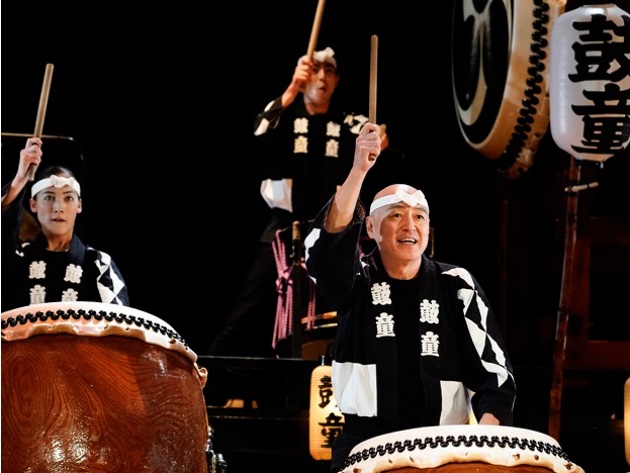
After two years of forced absence, the Kodō, the musical group of percussionists of the Japanese taiko drums from Sado island, are back for a unique performance at the Auditorium. In Japanese, the word kodō expresses two meanings: "heartbeat" intended as the primary source of all rhythms or "children of the drums." The Kodō repertoire includes both pieces based on the traditional rhythms of the region of origin, and scores composed specifically for the group by contemporary composers and pieces created by the musicians themselves.
Since the first world tour with the historic performance at the Berlin Festival in 1981, the group has in fact distinguished itself for the ability to remain faithful to the thousand-year-old tradition of taiko, while always continuing to open up to new horizons in a continuous contamination with the language of contemporary dance, mime and visual arts in general. Since their debut, Kodō have produced over 6,500 shows in 52 countries on five continents. About 4,000 of these go under the title of One Earth, a theme that embodies the group's desire to transcend linguistic and cultural boundaries, reminding the public of the common bonds we all share as human beings. This European tour, titled Tsuzumi (term that Japanese hourglass drums) includes the famous song Dyu-Ha by Maki Ishii, which celebrates the birth of the group in 1981, as well as others, such as Ishii's masterpiece Monochrome and again O-daiko, Yatai-bayashi and Zoku, along with compositions created in the last years of isolation.
In addition to touring productions, Kodō work with thousands of schools across Japan through their ongoing "School Workshop Performance" tours. The ensemble also takes part in a wide range of projects and events, as a guest of major international festivals, contributing to film soundtracks and collaborating with leading artists around the world.
Photo credits: courtesy of Kodō Facebook Page
Informations
 Condividi
Condividi











































